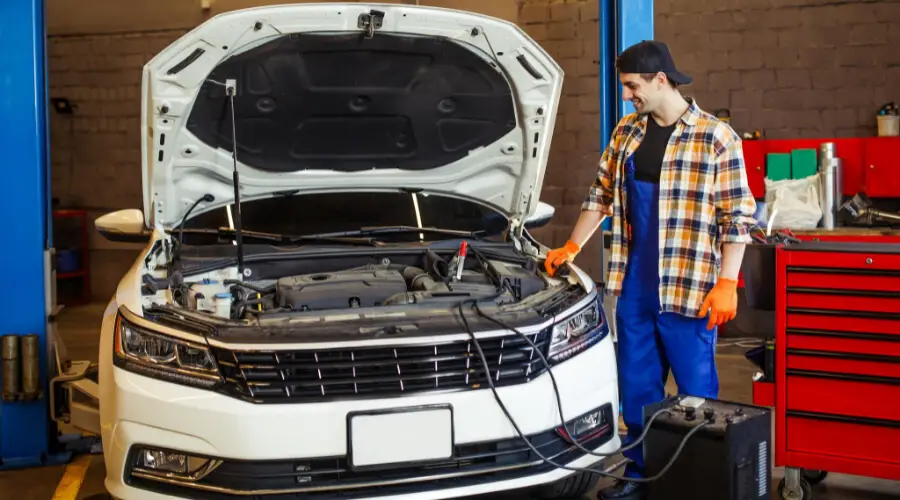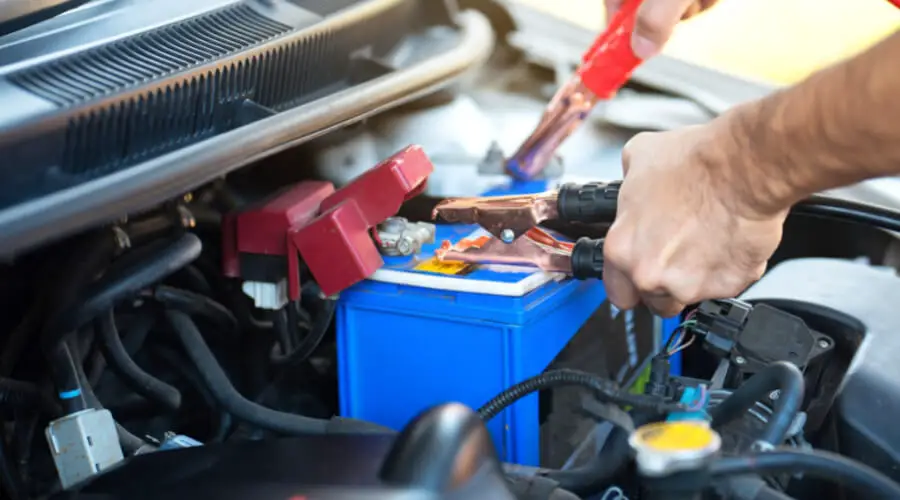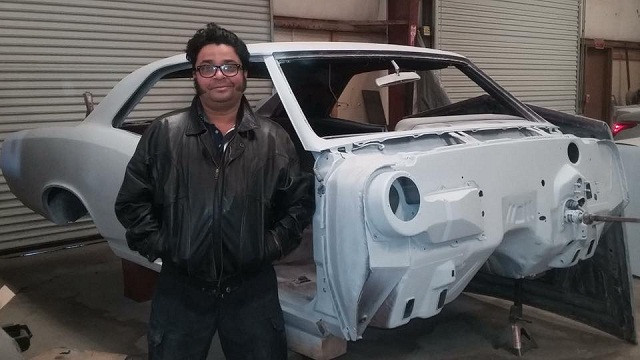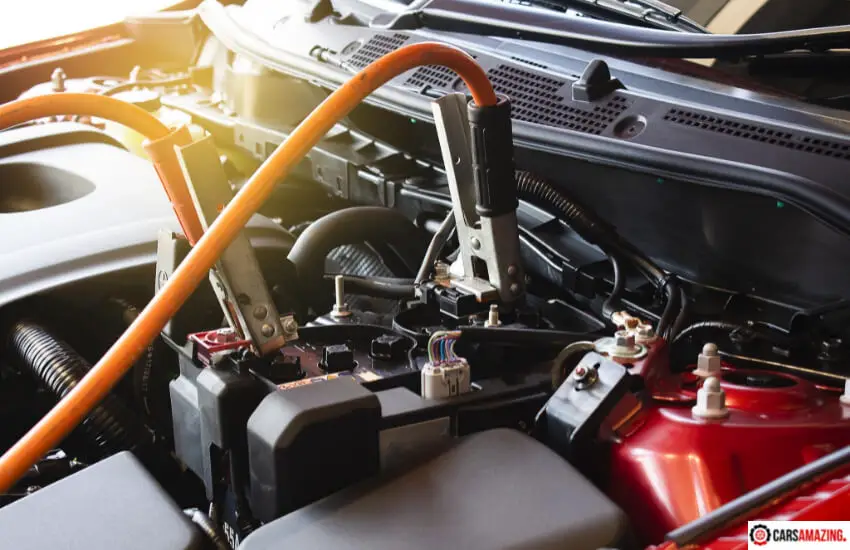Last Updated on February 5, 2023 by Leepu Da Maxim
A car battery charges every time your car is running. The alternator ensures a constant flow of AC power that runs to the battery. Every time a vehicle is running, the alternator produces power. This is assuming that your car battery is in good condition. If the battery is not in good health, it will no longer hold a charge.
Key Takeaways
- How long it will take to charge a battery when the car is driving depends on the battery’s size, the alternator’s output, the battery’s state of charge, etc.
- Usually, it takes 30 minutes to an hour of driving time to fully charge a car battery
- If the battery is heavily discharged then it will take more time to charge the battery
Can A Battery Charge When The Engine Is Idling?
Yes, car batteries do charge while the engine is idling. Again, this is assuming that your car battery can hold a charge. If the mechanical action of the alternator is taking place, it produces an AC, thus, charging the battery while the vehicle is idling.
How Long To Idle The Car For Battery To Charge?

If your car sits for long without use or you are not driving as much as you used to, it is always good to allow your engine to idle for the battery to recharge. You will have to allow the car to idle, probably for a couple of hours, to charge the battery completely. Most electrical systems in the car get power from the alternator. Hence, the energy remaining to recharge your battery is small.
Some of the factors determining how fast the battery will charge when the car is idling include the number of computer and electrical systems in the car, your battery’s health, and the amount of voltage the alternator produces.
Therefore, if you allow the engine to idle, it will put a bit of charge on the battery, although this might not be the most efficient way of charging the battery. Instead of allowing an idling engine to charge the battery, you should opt for driving.
How Long Will It Take To Charge A Battery While Driving?

The best and most efficient way of charging the car battery is by driving. The time you will take to recharge will depend on the last time you recharged it. As you drive the engine, power goes to the battery. Therefore, there is no way the battery will overcharge and get damaged. The engine charges the battery through the alternator until it fully charges, and then the power gets distributed to other features.
Charging as you drive will take less time. If you use an external charger, you will take more time to charge. You may start the car in half an hour. It takes roughly an hour to charge your battery fully when driving. The engine’s revolutions per minute determine the time taken to charge the battery. A car user needs at least 1000 RPM to generate enough extra power for the battery. A faster speed generates more RPM.
The easiest way to charge the battery is by driving on a highway at a high speed, preferably at 55MPH
Charging A Dead Car Battery
It’s hard to find yourself in a situation where your car is not starting. No matter which method you apply, it will not work. Once the battery is dead, you must revive it. Reviving the battery will need a charger. If you want to rush somewhere, a 40 amps charger will do the job fast enough. A car battery takes about 4 to 24 hours to charge fully.
If you want to know how much time it will take you to charge the dead battery, you should check the ampere of the battery and the charger. A 48-amp battery will take only 12 hours to charge when using a 4-amp charger.
If your battery is dead and you start charging, you may start your car at least after an hour. If the car battery doesn’t charge at all, you may opt to jump-start it.
Jump-starting A Vehicle
If your battery is dead and looking for a quick fix, you may consider jump-starting the car. Many modern jump starters will start the car immediately, but this is a short-term fix for those days you have an emergency. Cars die when the battery is dead or if other damages are affecting the battery. It’s important to be careful about jump-starting your car, as doing it may severely harm the vehicle.
Jump starting a car puts stress on the alternator. Remember, the alternator is forced to work hard to power your battery and car, resulting in damaging the dead battery. Moreover, jump-starting is also harmful to a car. Although it is a quick option during emergencies, it can cause severe damage, which will cost you a lot of money to repair. Instead of jump-starting, consider replacing the battery.
How To Keep Your Battery Healthy
The best way of keeping your battery healthy is by charging it. Avoid letting the battery sit for too long without using or charging, which can harm the battery. You should also avoid keeping the car in extreme weather as high/cold temperatures may damage the car’s battery life. Always store your car in the garage.
Before you leave your car, you should double-check if you have turned off the ac, radio, and other devices that may drain the battery charge. Also, ensure that your battery terminals are always clean.
Conclusion
Car batteries are low-maintenance things that may take too long to notice if there is a problem. Driving the car often ensures that you don’t face problems with your battery. The best and most efficient way of charging the car battery is by driving the car, as letting the car sit for too long may result in battery-related problems.
References:
https://www.batteriesplus.com/blog/power/car-battery-charging
https://autochimps.com/charge-car-battery-while-driving/

Hi, I’m Leepu Da Maxim , a dedicated car enthusiast with over 10 years of experience in this field, and I’m thrilled to share my passion and expertise with fellow car enthusiasts like you. My journey began in my hometown West Jordan, Utah, where my fascination with the mechanics and design of cars sparked at a young age. Over the years, this passion has evolved into a commitment to providing accurate, insightful, and engaging information about all things automotive through CarsAmazing .

